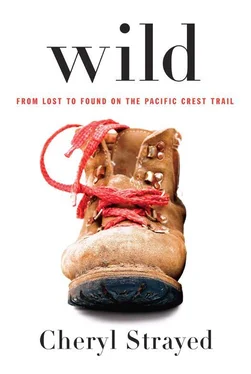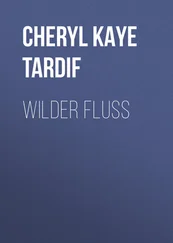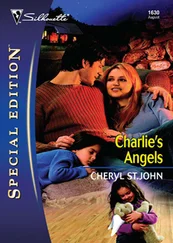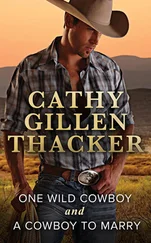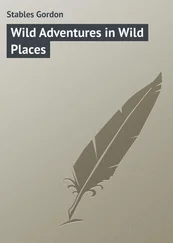Cheryl Strayed - Wild
Здесь есть возможность читать онлайн «Cheryl Strayed - Wild» весь текст электронной книги совершенно бесплатно (целиком полную версию без сокращений). В некоторых случаях можно слушать аудио, скачать через торрент в формате fb2 и присутствует краткое содержание. Год выпуска: 2012, ISBN: 2012, Жанр: Современная проза, на английском языке. Описание произведения, (предисловие) а так же отзывы посетителей доступны на портале библиотеки ЛибКат.
- Название:Wild
- Автор:
- Жанр:
- Год:2012
- ISBN:978-0-307-95765-8
- Рейтинг книги:4 / 5. Голосов: 1
-
Избранное:Добавить в избранное
- Отзывы:
-
Ваша оценка:
- 80
- 1
- 2
- 3
- 4
- 5
Wild: краткое содержание, описание и аннотация
Предлагаем к чтению аннотацию, описание, краткое содержание или предисловие (зависит от того, что написал сам автор книги «Wild»). Если вы не нашли необходимую информацию о книге — напишите в комментариях, мы постараемся отыскать её.
Wild — читать онлайн бесплатно полную книгу (весь текст) целиком
Ниже представлен текст книги, разбитый по страницам. Система сохранения места последней прочитанной страницы, позволяет с удобством читать онлайн бесплатно книгу «Wild», без необходимости каждый раз заново искать на чём Вы остановились. Поставьте закладку, и сможете в любой момент перейти на страницу, на которой закончили чтение.
Интервал:
Закладка:
I didn’t know.
I only knew that it was time to go, so I opened the door and stepped into the light.
PART TWO. TRACKS
The words are purposes.
The words are maps.
ADRIENNE RICH, “Diving into the Wreck”Will you take me as I am?
Will you?
JONI MITCHELL, “California”4
THE PACIFIC CREST TRAIL, VOLUME 1: CALIFORNIA
I’d done a lot of dumb and dangerous things in my life, but soliciting a ride with a stranger was not yet one of them. Horrible things happened to hitchhikers, I knew, especially to women hitchhiking alone. They were raped and decapitated. Tortured and left for dead. But as I made my way from White’s Motel to the nearby gas station, I could not allow such thoughts to distract me. Unless I wanted to walk twelve miles along the broiling shoulder of the highway to reach the trail, I needed a ride.
Plus, hitchhiking was simply what PCT hikers did on occasion. And I was a PCT hiker, right? Right?
Right.
The Pacific Crest Trail, Volume 1: California had explained the process with its usual equanimity. On some occasions the PCT would cross a road and miles down that road would be the post office where one would have mailed the box of food and supplies needed on the next section of the trail. Hitchhiking was the only practical solution when it came to fetching those boxes and returning to the trail.
I stood near the soda machines up against the gas station building, watching people come and go, trying to work up the nerve to approach one of them, hoping I’d sense that I was safe from harm when I saw the right person. I watched old desert-grizzled men in cowboy hats and families whose cars were full already and teenagers who pulled up with music blasting out their open windows. Nobody in particular looked like a murderer or rapist, but nobody in particular didn’t look like one either. I bought a can of Coke and drank it with a casual air that belied the fact that I could not stand up properly because of the unbelievable weight on my back. Finally, I had to make a move. It was nearly eleven, pitching steadily into the heat of a June day in the desert.
A minivan with Colorado plates pulled up and two men got out. One man was about my age, the other looked to be in his fifties. I approached them and asked for a ride. They hesitated and glanced at each other, their expressions making it apparent that they were united in their silent search for a reason to say no, so I kept talking, explaining in quick bursts about the PCT.
“Sure,” the older one said finally, with obvious reluctance.
“Thank you,” I trilled girlishly. When I hobbled toward the big door on the side of the van, the younger man rolled it open for me. I gazed inside, realizing suddenly that I had no idea how to get in. I couldn’t even attempt to step up into it with my pack on. I’d have to take my pack off, and yet how? If I undid the buckles that held the backpack’s straps around my waist and over my shoulders, there would be no way that I could keep it from falling so violently away from me that it might rip my arms off.
“You need a hand?” the young man asked.
“No. I’ve got it,” I said in a falsely unruffled tone. The only thing I could think to do was turn my back to the van and squat to sit on the doorframe while clutching the edge of the sliding door, letting my pack rest on the floor behind me. It was bliss. I unclipped my pack’s straps and carefully extricated myself without tipping my pack over and then turned to climb inside the van to sit beside it.
The men were friendlier to me once we were on our way, driving west through an arid landscape of parched-looking bushes and pale mountains stretching off into the distance. They were a father and son from a suburb of Denver, on their way to a graduation ceremony in San Luis Obispo. Before long, a sign announcing Tehachapi Pass appeared and the older man slowed the van and pulled to the side of the road. The younger man got out and slid the big door open for me. I’d hoped to put my pack on the same way I’d taken it off, aided by the height of the van’s floor as I squatted in the doorway, but before I could step out, the man pulled out my pack and dropped it heavily in the gravelly dirt by the side of the road. It fell so hard I feared my dromedary bag would burst. I climbed out after it and pulled it back to standing position and dusted it off.
“Are you sure you can lift that?” he asked. “ ’Cause I barely can.”
“Of course I can lift it,” I said.
He stood there, as if waiting for me to prove it.
“Thanks for the ride,” I said, wanting him to leave, so he wouldn’t be witness to my humiliating pack-donning routine.
He nodded and slid the van’s door shut. “Be safe out there.”
“I will,” I said, and watched him get back in the van.
I stood by the silent highway after they drove away. Small clouds of dust blew in swirling gusts beneath the glaring noon sun. I was at an elevation of nearly 3,800 feet, surrounded in all directions by beige, barren-looking mountains dotted with clusters of sagebrush, Joshua trees, and waist-high chaparral. I was standing at the western edge of the Mojave Desert and at the southern foot of the Sierra Nevada, the vast mountain range that stretched north for more than four hundred miles to Lassen Volcanic National Park, where it connected with the Cascade Range, which extended from northern California all the way through Oregon and Washington and beyond the Canadian border. Those two mountain ranges would be my world for the next three months; their crest, my home. On a fence post beyond the ditch I spied a palm-sized metal blaze that said PACIFIC CREST TRAIL.
I was here. I could begin at last.
It occurred to me that now would be the perfect time to take a photograph, but to unpack the camera would entail such a series of gear and bungee cord removals that I didn’t even want to attempt it. Plus, in order to get myself in the picture, I’d have to find something to prop the camera on so I could set its timer and get into place before it took the shot, and nothing around me looked too promising. Even the fence post that the PCT blaze was attached to seemed too desiccated and frail. Instead, I sat down in the dirt in front of my pack, the same way I’d done in the motel room, wrested it onto my shoulders, and then hurled myself onto my hands and knees and did my dead lift to stand.
Elated, nervous, hunching in a remotely upright position, I buckled and cinched my pack and staggered the first steps down the trail to a brown metal box that was tacked to another fence post. When I lifted the lid, I saw a notebook and pen inside. It was the trail register, which I’d read about in my guidebook. I wrote my name and the date and read the names and notes from the hikers who’d passed through in the weeks ahead of me, most of them men traveling in pairs, not one of them a woman alone. I lingered a bit longer, feeling a swell of emotion over the occasion, and then I realized there was nothing to do but go, so I did.
The trail headed east, paralleling the highway for a while, dipping down into rocky washes and back up again. I’m hiking! I thought. And then, I am hiking on the Pacific Crest Trail . It was this very act, of hiking, that had been at the heart of my belief that such a trip was a reasonable endeavor. What is hiking but walking, after all? I can walk! I’d argued when Paul had expressed his concern about my never actually having gone backpacking. I walked all the time. I walked for hours on end in my work as a waitress. I walked around the cities I lived in and visited. I walked for pleasure and purpose. All of these things were true. But after about fifteen minutes of walking on the PCT, it was clear that I had never walked into desert mountains in early June with a pack that weighed significantly more than half of what I did strapped onto my back.
Читать дальшеИнтервал:
Закладка:
Похожие книги на «Wild»
Представляем Вашему вниманию похожие книги на «Wild» списком для выбора. Мы отобрали схожую по названию и смыслу литературу в надежде предоставить читателям больше вариантов отыскать новые, интересные, ещё непрочитанные произведения.
Обсуждение, отзывы о книге «Wild» и просто собственные мнения читателей. Оставьте ваши комментарии, напишите, что Вы думаете о произведении, его смысле или главных героях. Укажите что конкретно понравилось, а что нет, и почему Вы так считаете.
